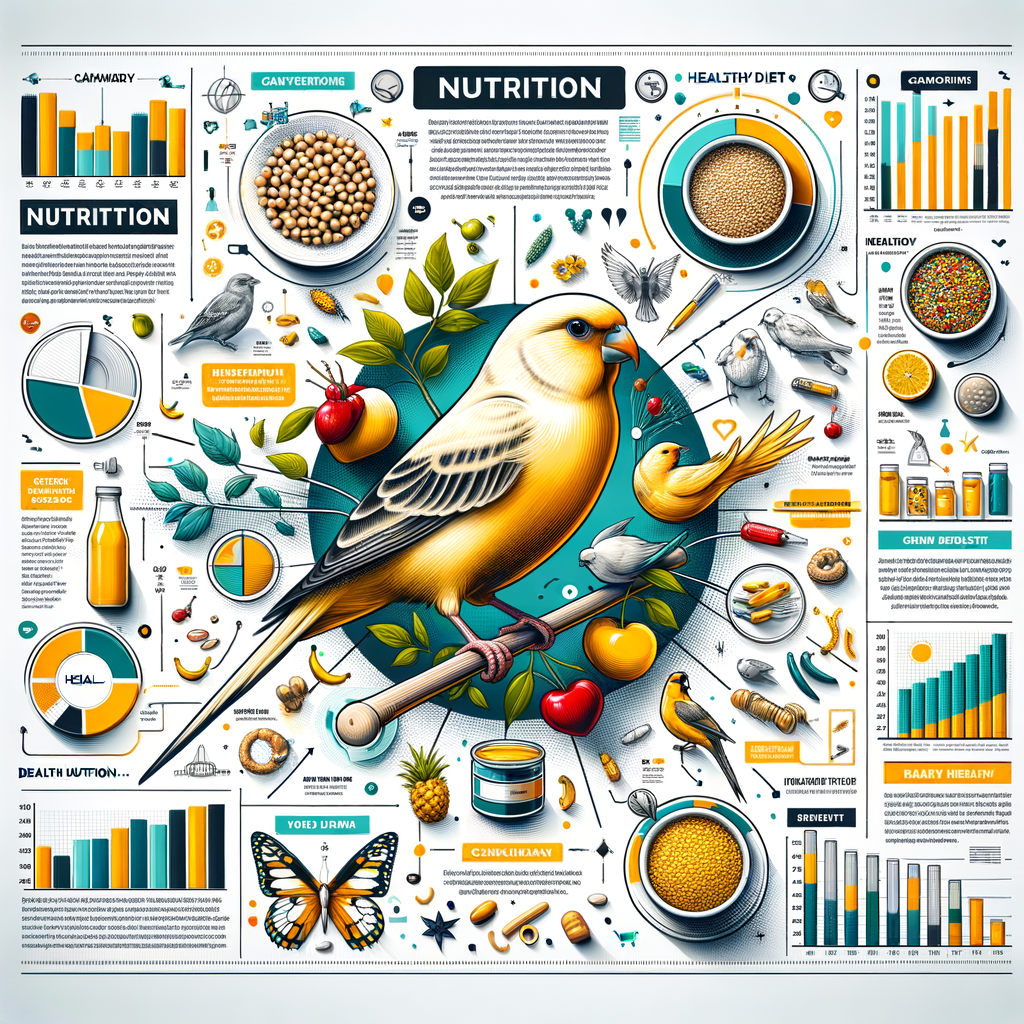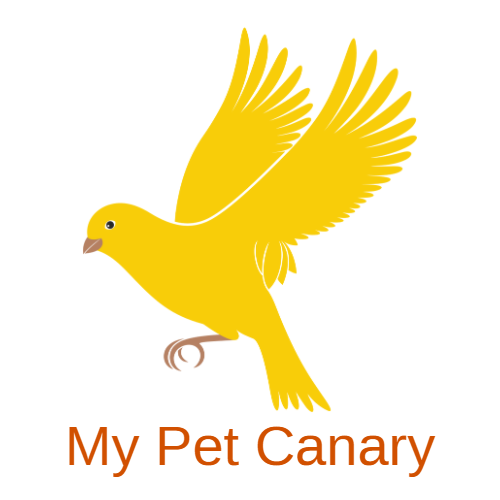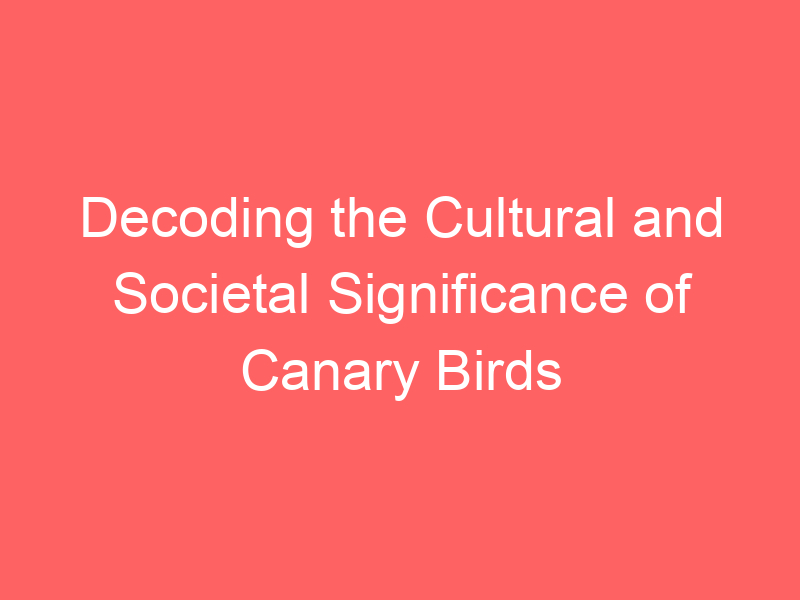
Introduction to Canary Birds Nutrition
When it comes to maintaining the health and happiness of your canary bird, nutrition plays an integral role. In this section, we will delve into the importance of a proper diet, understand the basics of bird nutrition, and explore the impact of diet on a canary bird’s health.
- Importance of Proper Diet for Canary Birds
- Understanding Bird Nutrition Basics
- Impact of Diet on Canary Birds Health
Providing your canary bird with a well-balanced diet is crucial for its overall well-being. A proper diet ensures that your bird has the energy it needs to sing, play, and engage in other activities. It also helps to strengthen its immune system, making it less susceptible to diseases. A diet lacking in essential nutrients can lead to a variety of health problems, including weakened immunity, poor feather quality, and reduced lifespan.
Bird nutrition is not as simple as it might seem. Canary birds, like other birds, require a balanced diet that includes proteins, carbohydrates, fats, vitamins, and minerals. Proteins are essential for growth and feather development, while carbohydrates provide energy. Fats are necessary for energy storage, and vitamins and minerals are vital for various bodily functions. A balanced diet for a canary bird should include a mix of seeds, fruits, vegetables, and bird-safe proteins.
The diet of a canary bird directly impacts its health. A well-balanced diet can help prevent many common health issues in canary birds, such as obesity, heart disease, and liver problems. On the other hand, a poor diet can lead to malnutrition, weakened immunity, and a host of other health problems. For instance, a diet high in fat can lead to obesity, while a diet lacking in calcium can result in weak bones and beak. Therefore, it’s essential to provide your canary bird with a diet that meets all its nutritional needs.
In conclusion, the importance of a proper diet for canary birds cannot be overstated. By understanding the basics of bird nutrition and the impact of diet on a canary bird’s health, you can ensure that your feathered friend lives a long, healthy, and happy life.
Key to Bird Health: Nutritional Needs of Canary Birds
Understanding the nutritional needs of canary birds is crucial for their health and wellbeing. Just like humans, canary birds require a balanced diet to thrive. This includes essential nutrients, vitamins, minerals, and adequate hydration. Let’s delve into these aspects in detail.
- Essential Nutrients for Canary Birds
- Role of Vitamins and Minerals in Bird Health
- Understanding the Importance of Hydration
Canary birds need a variety of nutrients for their overall health. These include proteins, carbohydrates, and fats. Proteins are vital for growth and repair, while carbohydrates provide energy. Fats, though needed in smaller amounts, are essential for certain bodily functions.
Seeds are a primary source of these nutrients for canary birds. However, a diet solely based on seeds can lead to deficiencies. It’s important to supplement their diet with fresh fruits and vegetables. These provide additional nutrients and add variety to their diet.
Vitamins and minerals play a significant role in the health of canary birds. They support various bodily functions, from bone formation to immune response. For instance, calcium is crucial for strong bones and beak health. Vitamin A promotes good vision and skin health.
While seeds contain some vitamins and minerals, they don’t provide enough. Canary birds also need a variety of fruits, vegetables, and specially formulated bird pellets to meet their nutritional needs.
Hydration is as important to birds as it is to humans. Water aids in digestion, nutrient absorption, and body temperature regulation. It also helps keep a bird’s skin and feathers healthy.
Ensure your canary bird has access to fresh, clean water at all times. Change the water daily to prevent the growth of bacteria and other harmful organisms.
In conclusion, a balanced diet rich in essential nutrients, vitamins, minerals, and adequate hydration is key to the health of canary birds. By understanding and meeting these nutritional needs, you can ensure your feathered friend thrives.
Proper Canary Bird Care: A Comprehensive Guide
When it comes to taking care of your canary bird, one of the most important aspects is their diet. A well-balanced diet is key to ensuring your bird’s health and longevity. Let’s delve into what constitutes a healthy diet for your canary.
Healthy Diet for Birds: What to Feed Your Canary
Canaries thrive on a diverse diet. Here are the main components of a healthy canary diet:
- Seeds: The Staple of Canary Diet
- Fruits and Vegetables: A Vital Addition
- Protein Sources: Occasional Treats
Seeds are a primary food source for canaries. They are rich in carbohydrates and fats, which provide the energy your bird needs. The most common seeds in a canary’s diet include millet, canary seed, and niger seeds. However, seeds should not be the only food source for your bird as they lack certain essential nutrients.
Fruits and vegetables are a crucial part of a canary’s diet. They provide vitamins and minerals that seeds lack. Some good choices include apples, oranges, bananas, carrots, and spinach. Remember to wash all fruits and vegetables thoroughly before feeding them to your bird to remove any pesticides.
Canaries also need protein in their diet. This can be provided through occasional treats like hard-boiled eggs, cooked chicken, or insects like mealworms. However, these should be given sparingly as too much protein can be harmful to your bird.
Remember, a balanced diet is key to your canary’s health. By providing a variety of foods, you can ensure your bird gets all the nutrients it needs to thrive.
Understanding the Risks: Foods to Avoid
While a balanced diet is essential for your canary’s health, it’s equally important to understand the foods that can harm them. Here are some foods that you should avoid feeding your canary:
- Avocado: A Potential Danger
- Chocolate and Caffeine: A No-No for Birds
- Other Harmful Foods for Canary Birds
Avocados are a popular food for humans, but they can be toxic to canaries. They contain a substance called persin, which can cause respiratory distress, heart failure, and even death in birds. It’s best to keep avocados out of your canary’s diet to ensure their safety.
Chocolate and caffeine are two other foods that can be harmful to canaries. They can cause hyperactivity, increased heart rate, tremors, and seizures. In severe cases, they can even be fatal. So, it’s crucial to keep any food or drink containing chocolate or caffeine away from your bird.
Other foods to avoid include alcohol, onions, garlic, and high-salt foods. Alcohol can cause liver damage, while onions and garlic can lead to digestive issues. High-salt foods can lead to excessive thirst, dehydration, and kidney damage. Remember, a healthy diet for your canary should consist mainly of seeds, fruits, and vegetables, with occasional protein sources.
By understanding the risks associated with these foods, you can ensure your canary’s diet is not only nutritious but also safe. Remember, when in doubt, it’s always best to consult with a vet or a bird nutrition expert.
Health Tips for Canary Birds: Ensuring Optimal Health
Keeping your canary bird healthy is not just about providing the right food. It also involves regular vet check-ups, ensuring they get enough exercise, and monitoring their weight. Here are some tips to help you ensure your canary bird stays in optimal health.
- Regular Vet Check-ups: A Must for Bird Health
- Importance of Exercise for Canary Birds
- Monitoring Bird Weight: A Key Health Indicator
Just like humans, birds need regular check-ups too. A vet can spot signs of illness or disease that you might miss. They can also give your bird vaccinations to prevent certain diseases. Make sure to schedule regular vet visits, at least once a year, for your canary bird.
Canary birds are active creatures and need plenty of exercise to stay healthy. Exercise helps keep their heart and lungs in good shape and also helps prevent obesity. Provide your bird with a large cage that allows them to fly around. You can also encourage exercise by placing toys in the cage that promote physical activity.
Keeping an eye on your bird’s weight is another important aspect of their health. A sudden weight loss or gain can be a sign of illness. You can monitor your bird’s weight by using a small bird scale. If you notice any drastic changes, it’s best to consult a vet immediately.
In conclusion, maintaining your canary bird’s health involves regular vet check-ups, ensuring they get enough exercise, and monitoring their weight. By following these tips, you can ensure your bird stays in optimal health and lives a long, happy life.
Case Study: Impact of Proper Nutrition on Canary Birds Health
Let’s delve into a real-life example to understand the significance of proper nutrition in maintaining the health of canary birds. We’ll explore the transformation of a canary bird named Tweety.
Case Study 1: The Transformation of Tweety
- Background of Tweety
- Nutritional Changes Implemented
- Improvements in Tweety’s Health
Tweety, a vibrant canary bird, had been experiencing a decline in her health. She was lethargic, her feathers lost their lustre, and she stopped singing, which was unusual for canary birds known for their melodious chirping.
Tweety’s owner decided to make significant changes to her diet. Instead of feeding her a seed-only diet, he introduced a variety of fruits, vegetables, and high-quality pellet food. Tweety’s new diet included apples, carrots, broccoli, and specially formulated canary pellets rich in vitamins and minerals.
After a few weeks of the dietary changes, Tweety’s health began to improve. She became more active, her feathers regained their shine, and she started singing again. Her weight stabilized, and she displayed an overall increase in vitality. This transformation was a clear testament to the power of proper nutrition in maintaining a canary bird’s health.
Let’s summarize Tweety’s transformation in a table for a quick overview:
| Before Nutritional Changes | After Nutritional Changes |
|---|---|
| Lethargic, dull feathers, no singing | Active, shiny feathers, melodious singing |
| Seed-only diet | Diet rich in fruits, vegetables, and high-quality pellets |
| Declining health | Improved health and increased vitality |
In conclusion, Tweety’s case study clearly demonstrates the positive impact of a balanced and nutritious diet on a canary bird’s health.
Case Study 2: The Journey of Chirpy
Let’s delve into the journey of Chirpy, another canary bird, and see how proper nutrition played a crucial role in improving its health.
- Chirpy’s Initial Health Status
- Dietary Adjustments Made
- Chirpy’s Health Progress
Chirpy, a two-year-old canary bird, was initially underweight and lethargic. Its feathers lacked the usual vibrant yellow color, and it often showed signs of fatigue. Chirpy’s owner was concerned about its health and sought advice from a veterinarian.
After a thorough examination, the vet suggested a complete overhaul of Chirpy’s diet. The bird was put on a balanced diet of seeds, fruits, vegetables, and a special blend of canary bird pellets. The diet was rich in proteins, vitamins, and minerals essential for a canary bird’s health.
| Diet Component | Benefit |
|---|---|
| Seeds | Provide essential fats and proteins |
| Fruits and Vegetables | Supply vitamins and minerals |
| Canary Bird Pellets | Ensure a balanced diet |
Within a few weeks of the dietary change, Chirpy started showing signs of improvement. It gained weight, its feathers regained their vibrant color, and it became more active. After six months, Chirpy was a picture of health, all thanks to the balanced diet and proper nutrition.
Chirpy’s journey is a testament to the power of proper nutrition in maintaining the health and vitality of canary birds. It highlights the importance of understanding and meeting the nutritional needs of our feathered friends.
Conclusion: The Power of Proper Nutrition in Canary Bird Health and Nutrition
As we conclude this comprehensive guide on canary bird health and nutrition, it’s essential to reflect on the key points we’ve discussed and the significant role that proper nutrition plays in maintaining the health of your canary bird.
- Recap of Key Points
- Final Thoughts on Canary Bird Nutrition
- Encouragement for Continued Learning and Application
Throughout this guide, we’ve emphasized the importance of a balanced diet for your canary bird. We’ve learned that canaries require a variety of foods, including seeds, fruits, vegetables, and proteins. We’ve also discovered that certain foods, such as avocados and chocolate, can be harmful to canaries and should be avoided.
Proper nutrition is not just about feeding your canary bird; it’s about providing them with the right nutrients in the right amounts. A well-nourished canary is more likely to have a vibrant plumage, sing beautifully, and live a long, healthy life. Remember, each bird is unique and may have specific dietary needs. Always consult with a vet or a bird nutrition expert to ensure your canary is getting the nutrition it needs.
As a canary bird owner, your learning journey doesn’t end here. Continue to research, learn, and apply your knowledge to ensure your bird’s health and happiness. Remember, the better you understand your bird’s nutritional needs, the better you can provide for them. Your efforts will be rewarded with a healthy and happy canary bird.
In conclusion, the power of proper nutrition in canary bird health and nutrition cannot be overstated. It’s the key to a vibrant, healthy, and long-lived bird. So, keep learning, keep applying, and enjoy the beautiful journey of caring for your canary bird.








